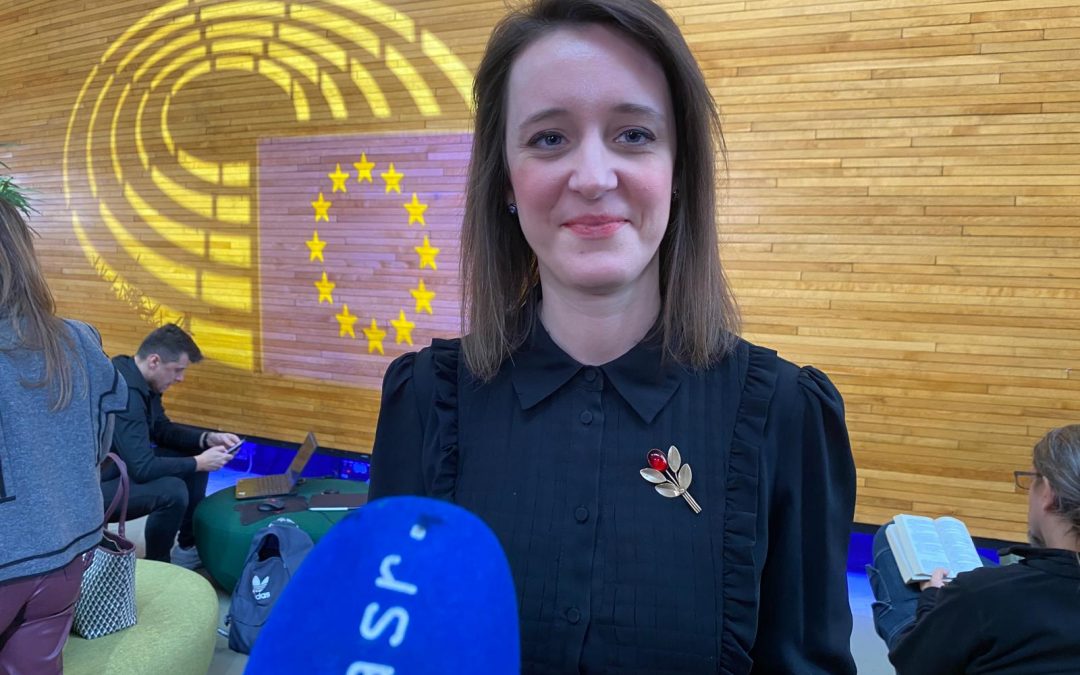Strasbourg – Members of the European Parliament (EP) on Wednesday (12th February) in Strasbourg discussed the need for targeted support for EU regions bordering Russia, Belarus, and Ukraine. Slovak MEPs across the political spectrum confirmed to TASR that the EU must not forget about the future development of these border regions.
Ľubica Karvašová (RE/PS), who is the only regular member of the EP Committee on Regional Development (REGI), emphasized to TASR that this is a big issue because euro-institutions are already dealing with how cohesion policy and the setting of EU funds should look in the future, and it is important to perceive the changes that have occurred after Russian aggression in Ukraine.
“We must look at the eastern border of the EU a bit differently,” she stated. According to her, for Slovakia, there is a big difference whether it borders Russia or Ukraine, which is a candidate country and wants to develop cooperation with the EU. She sees the integration process as a major benefit for eastern Slovakia, which can profit from it just like Austrian border areas benefited after the Union’s expansion.
“Those areas have significantly elevated. We should use the same principle and help eastern Slovakia with infrastructure, business development, companies, and energy,” she explained. She claims that we need to wait for the European Commission’s proposal for the next multiannual financial framework and the envelope for cohesion policy aimed at regional development, which now constitutes one-third of the EU budget.
“It is important for it to remain this way, but there are considerations for the future on how to adapt cohesion to new challenges, set it so that it contributes to the EU’s competitiveness,” she specified.
Katarína Roth Neveďalová (unaffiliated/Smer-SD), as a substitute in the REGI committee, reminded that some regions bordering the mentioned countries also complain about migration issues and are requesting EU assistance in improving the technical protection of their borders. According to her, this particular debate does not concern Slovakia, although we also have a Schengen border with Ukraine.
“What we can do economically for these regions is support the construction of roads, investments, but also education and training, so that people do not leave regions where there are small municipalities with few inhabitants,” she described the situation. She added that people in this zone are exposed to the arrival of migrants, increased trade volume with Ukraine, as well as illegal trading through Ukrainian territory, smuggling cigarettes, drugs originating from Afghanistan, or human organs. “These are things that need to be addressed,” she stated.
There are indications that future EU policy may “slice” from regional policy or support for the agricultural sector. According to her, this would harm border regions. She added that Slovakia would like to use the EU Fund to support Ukraine for projects in the east – revitalizing railway tracks and the station in Čierna nad Tisou, increasing the capacity of the road crossing for cars and trucks at Vyšné Nemecké, and improving border controls.
MP Lucia Yar (RE/PS), vice-chairwoman of the budget committee, admitted that for her as a native of the easternmost part of Slovakia, this is a “passion project”. Therefore, through her committee, she wants to fight for the border regions to have enough finances. She pointed out that the war in Ukraine will end someday and both the EU and Slovakia must be interested in their integration.
“All economic indicators show that if Ukraine becomes an EU member, it will be a very important and strong impulse precisely for eastern Slovakia,” she concluded. The development of regions is supported by EU cohesion policy, but according to the MP, Slovakia is drawing these EU funds very poorly. The EU is already preparing a long-term budget for the next seven years, and the MP emphasized that her committee will work to ensure that enough funds are found for border regions. (13 February)
 go to the original language article
go to the original language article
